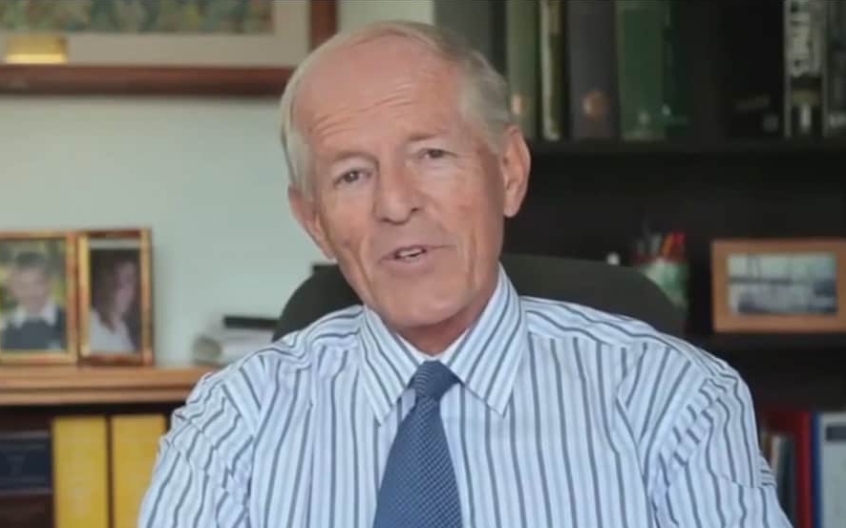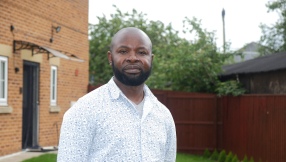When a story as horrifying as John Smyth's begins to be told, it's only natural to ask the question "Why?"
Smyth's behaviour – his alleged grooming and savage, repeated beatings of young Christians over many years – was exposed in Channel 4 news reports. But why did it take so long to come out? Why did he get away with it for so long? Why did those affected say nothing? And what drove him to it in the first place?

It's natural to ask the questions, but a rush to answer them is unhelpful, to say the least. Even in this age of instancy, it's best to take a while to think things through. However, even after a few days, some questions at least begin to take on more definition, and they are around whether there were particular factors in play that facilitated Smyth's abusive behaviour. For the avoidance of doubt, asking these questions isn't about explaining what he did, or – God forbid excusing it. This behaviour is wicked, full stop. But if we don't ask the right questions, we don't learn anything.
One question is around whether there's something about abusive behaviour in religious circles that makes it harder to deal with. I suspect the answer is that there is. We've seen it also in the shocking revelations from Australia about Catholic clergy and in many similar stories. The sense of group identity can be very strong and the appeal to an omnipotent authority by his representatives on earth is very hard to defy. Furthermore, the Church has more to lose, because it's all about goodness: you mustn't compromise the "witness", so you end up trying to preserve a reputation at the expense of justice.
The tendency to close ranks is undeniable though inexcusable. When Smyth's behaviour came to light in the early '80s it was not reported to police, a course of action no one now defends. The reasons for this are no longer clear – were the Iwerne Trust and Winchester College trying to protect the victims? But the general principle applies: groups protect themselves. Christians, with their profound sense of human insufficiency and the grace of God, ought to be predisposed to challenge this groupthink. We are not.
Another question is around theology. Bishop Alan Wilson blamed the abuse on the "violent theology" espoused at the so-called "Bash Camps" at the Iwerne summer schools – he didn't say so precisely, but he clearly has in mind the penal substitutionary theory of the atonement, in which God punishes Jesus instead of punishing us. Another bishop, Guildford's Andrew Watson, revealed he had himself been a victim of Smyth, but said: "I would also like to express the concern of myself and some of my fellow survivors that we are seen as people and not used as pawns in some political or religious game.
"Abusers espouse all theologies and none; and absolutely nothing that happened in the Smyth shed was the natural fruit of any Christian theology that I've come across before or since. It was abuse perpetrated by a misguided, manipulative and dangerous man, tragically playing on the longing of his young victims to live godly lives."
This is clearly true, and as David Robertson has said, evangelical theology is not to blame for sadistic abuse: "the violence of the cross negates and destroys the violence of the world". I'm not sure, though, that this lets theology entirely off the hook. I am of exactly the age and evangelical background – though I am neither Anglican nor public school educated, so wouldn't have been at Iwerne – to recognise the sort of theological language that was around in the late '70s. Some of it was indeed spiritually unhealthy, with an undue focus on punishment and the wrath of God – and a luxuriating in the graphic physical details of the scourging and crucifixion. When blood and excruciating pain are just part of your religious language, there may be consequences. Acknowledging this is not the same as saying it's "responsible" for what happened (and it doesn't amount to a critique of penal substitution, either) – but it ought to be part of some institutional soul-searching. However, I was not there (and neither was Alan Wilson).
Still another question is around elitism. Those who attended the Iwerne Trust's Bash Camps were from Britain's public schools – there's an irony about the term, as they were, and to a large extent are, reserved for those with a lot of money. These young men – and it was definitely male, as Anne Atkins made clear in her comment piece for the Telegraph – were a class apart, groomed for leadership in Church and state. They were the future evangelical officer class. One of them was the future Archbishop of Canterbury, Justin Welby. (Attempts to imply he knew about it are silly mischief-making if not worse.)
At one level, this is a troubling reminder of that old class system we are gradually leaving behind. But it also reminds us of what happens when people feel they're part of an elite, of whatever kind: being special means being set apart, and once you set people apart it's easier to persuade them that different rules apply. That's a routine tactic for abusers, because it's so effective, and the response to it should be a holy democracy: no one is special, because everyone is.
In his heartfelt statement, the Bishop of Guildford pleads for he and his fellow sufferers to be "seen as people and not used as pawns in some political or religious game". This is very important, and nothing that's written about them, or Smyth, should deny their individuality. Many of them have carried heavy burdens all their lives. They cannot be judged by those who haven't been through what they went through; we should have nothing but compassion and respect. At the same time the wider Church has to learn from what happened to them, because it might happen again.
We should not close ranks to protect our reputation.
We should not allow anyone to portray God as violent and wrathful.
We should not connive at the creation of a spiritual elite, in whatever context. We are all children of God, and the ground is level at the foot of the cross.
Follow Mark Woods on Twitter: @RevMarkWoods.













